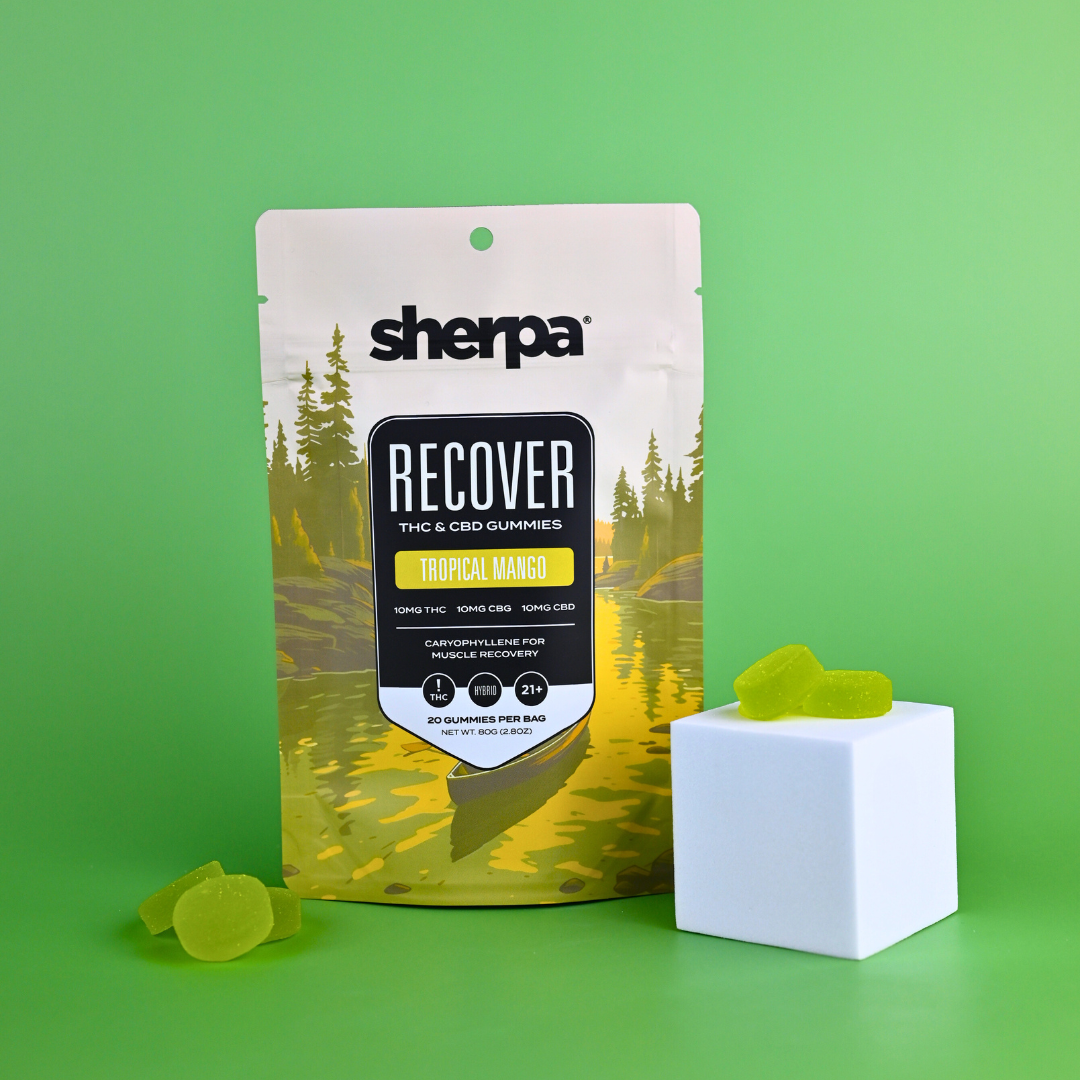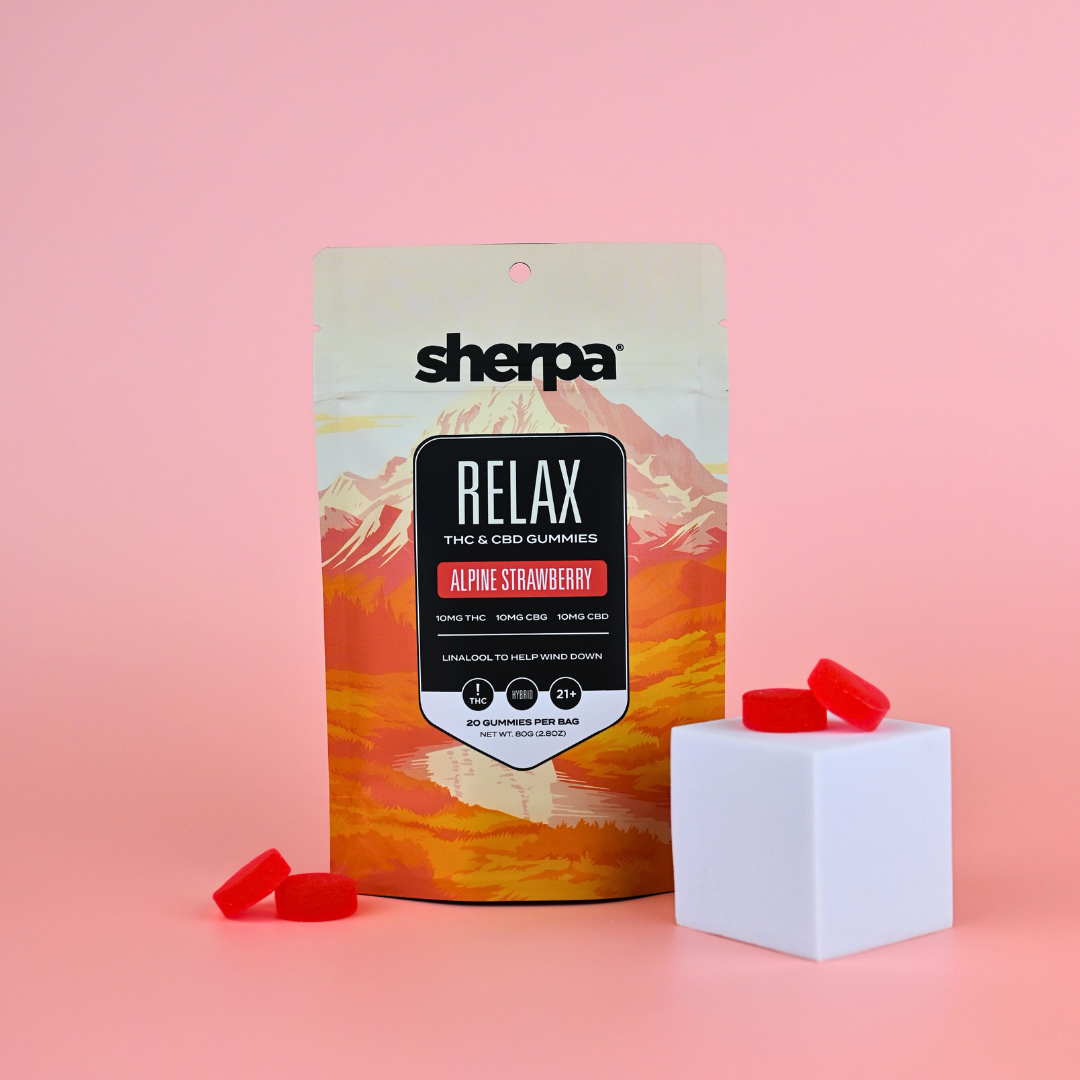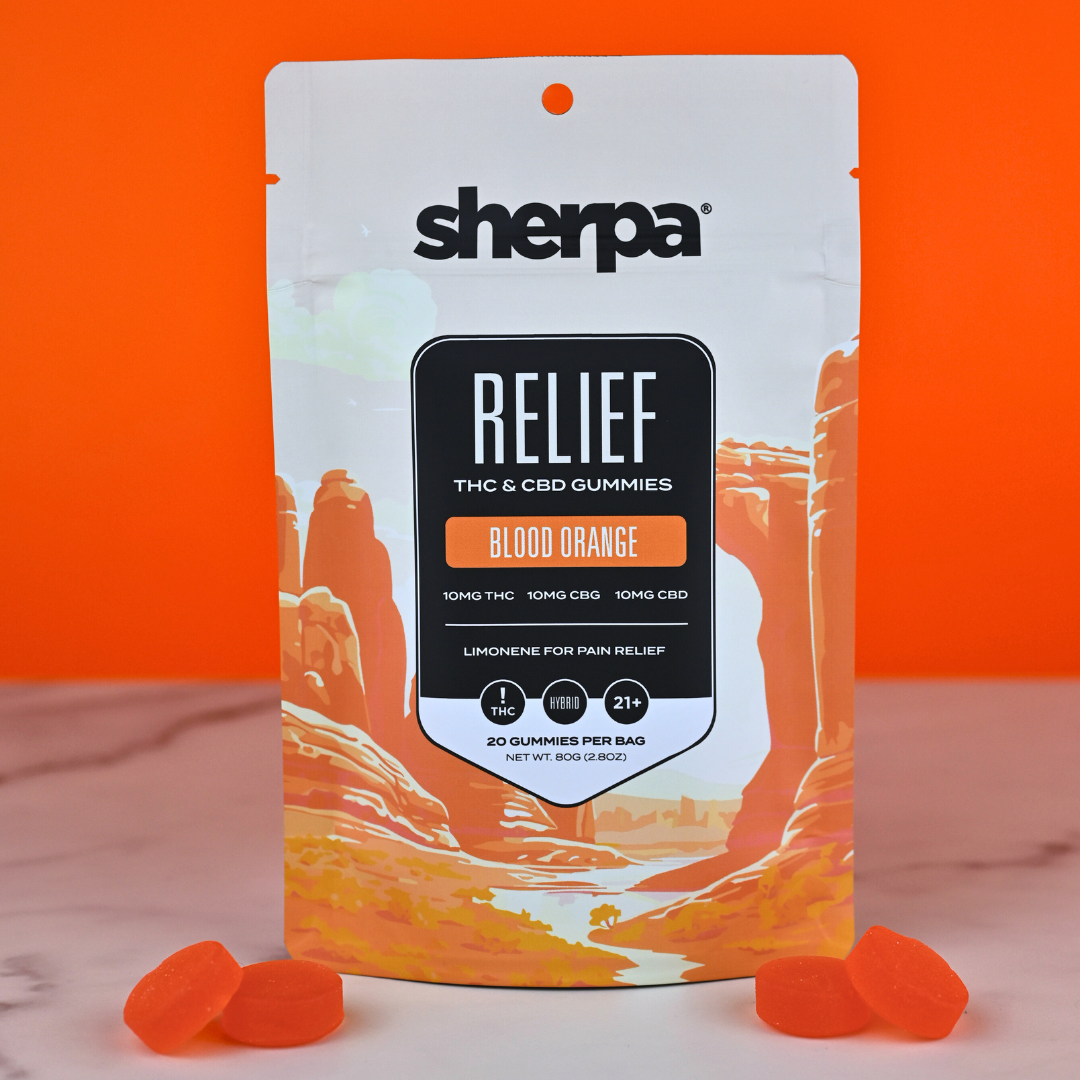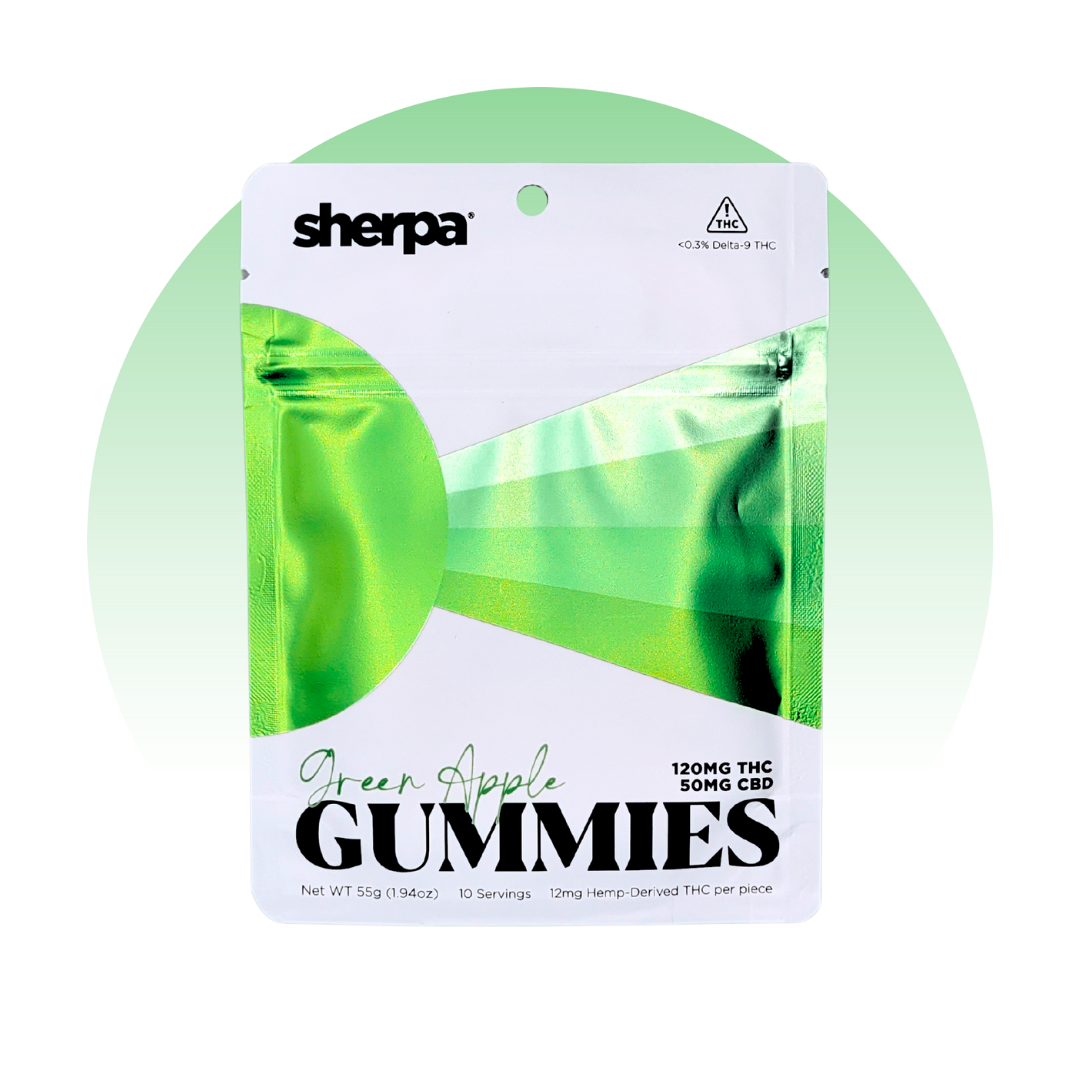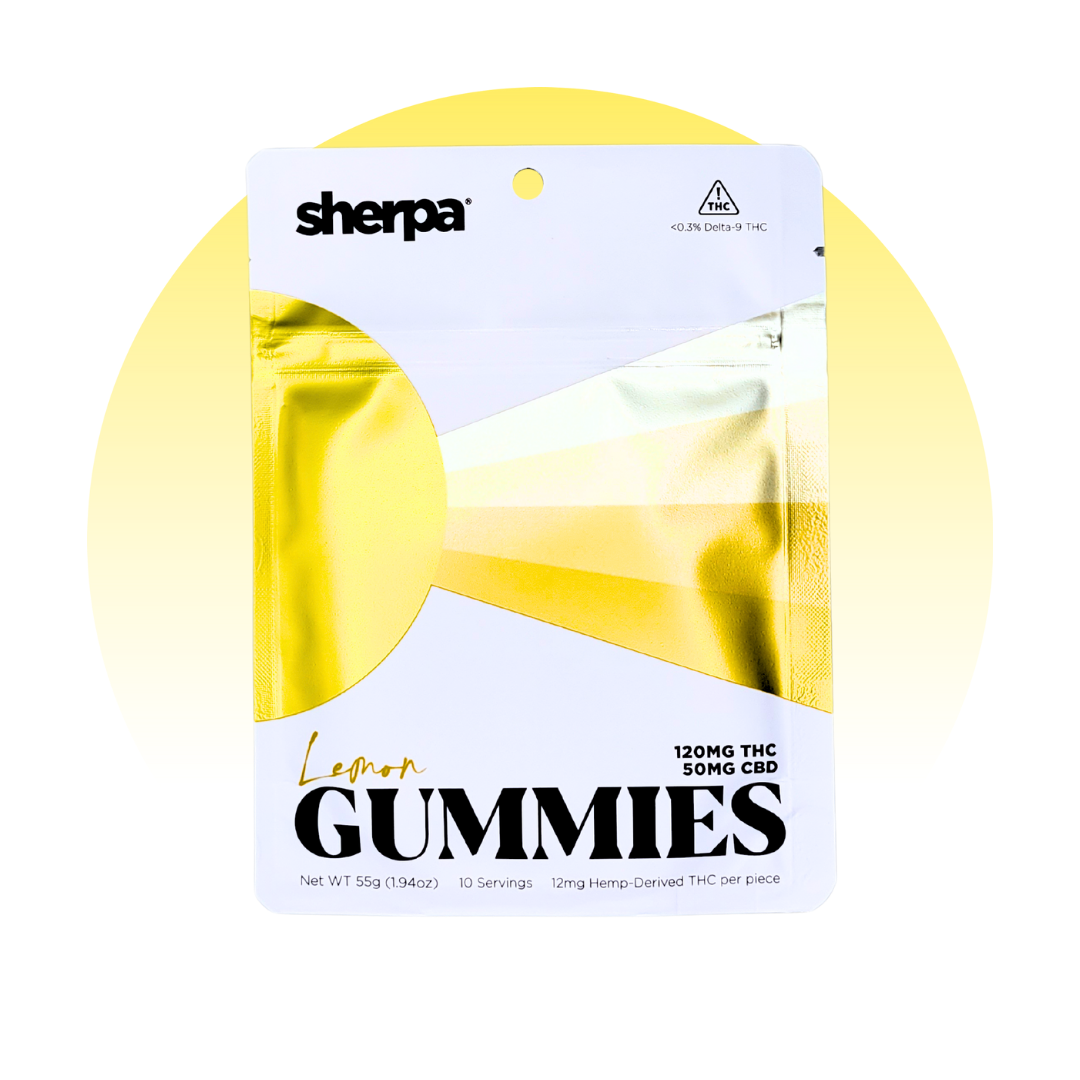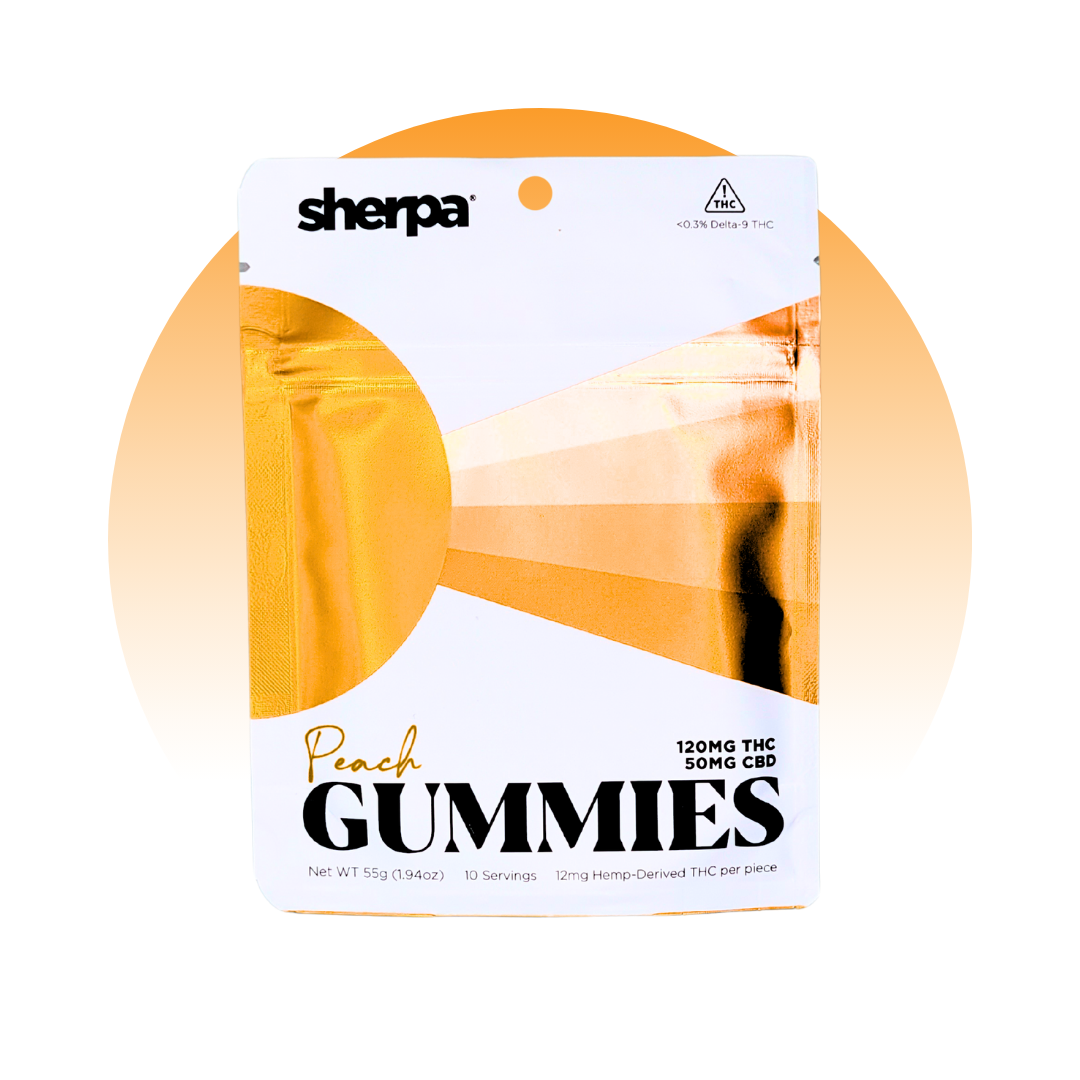
Our Blog
How Are THC Gummies Legal?
How Are THC Gummies Legal?
If you’ve ever spotted THC gummies at a smoke shop, wellness store, or even a gas station, you might have thought: Wait a second — how is this legal?
Don't worry, the confusion is a standard side effect.
A few years ago, THC-infused edibles were only available in licensed dispensaries in states where cannabis was fully legal. Now, they’re popping up all over the country, even in places where recreational marijuana is still restricted. So what changed?
The answer lies in how federal law defines hemp and cannabis, along with advancements in cannabinoid extraction and processing. THC gummies can be legally sold nationwide, not because of a loophole, but because they are made from hemp, which is federally legal under the 2018 Farm Bill.
Let’s break down exactly how this works, what kind of THC is used in these gummies, and what it means for consumers
The 2018 Farm Bill: The Law That Made Hemp-Derived THC Legal
The key to understanding why THC gummies are legal starts with the 2018 Farm Bill, which reshaped how the U.S. government classifies cannabis plants. Before this legislation, cannabis was considered a Schedule I drug under federal law, meaning it was completely prohibited regardless of THC content. The Farm Bill changed that by creating a legal distinction between hemp and marijuana, based on how much Delta-9 THC a plant contains.
Under the law, hemp is defined as cannabis containing 0.3% Delta-9 THC or less by dry weight, making it federally legal. In contrast, marijuana refers to any cannabis plant with more than 0.3% Delta-9 THC, which remains federally illegal, though individual states can set their own regulations. This reclassification was primarily designed to open the market for CBD and other non-psychoactive hemp products, but it also created a pathway for THC-infused edibles to be legally sold.
Because the law limits only THC concentration rather than the total amount of THC in a product, manufacturers have been able to develop hemp-derived THC gummies that meet legal requirements while still delivering noticeable effects. Since gummies are dense, they can contain multiple milligrams of THC per serving while staying under the 0.3% threshold by weight, allowing them to be legally sold across the country. This shift in classification transformed the cannabis industry, making it possible for consumers to access THC edibles outside of traditional dispensaries
How THC Gummies Are Made Within Legal Limits
The 2018 Farm Bill set a legal limit for THC concentration in hemp-derived products, capping it at 0.3% by dry weight. However, the law did not ban THC itself—only products that exceed this threshold. This has allowed manufacturers to create fully legal THC edibles that comply with federal guidelines while still producing noticeable effects
Extracting THC from Legal Hemp
Since hemp is federally legal, extracting cannabinoids from it is perfectly permissible. The process begins by harvesting hemp plants that naturally contain low levels of THC but higher amounts of other cannabinoids, such as CBD. Using specialized extraction methods, these cannabinoids are separated and refined into concentrated forms
Refining and Concentrating Cannabinoids
Once extracted, hemp-derived cannabinoids undergo advanced processing to refine and isolate THC while maintaining compliance with federal regulations. In many cases, CBD is chemically converted into Delta-9 THC through a lab-controlled process. This ensures that the final product remains hemp-derived rather than sourced from marijuana, keeping it within the scope of the Farm Bill’s legal framework
Keeping THC Content Within Legal Limits
The key to making these products fully compliant is ensuring that the THC concentration stays below 0.3% by dry weight. This is why THC gummies are formulated with carefully measured doses, using the natural weight of the gummy to keep the percentage within legal limits. Since gummies are dense and heavy, a single piece can contain several milligrams of hemp-derived Delta-9 THC while still remaining under the 0.3% THC threshold.
This legal classification allows consumers to purchase and enjoy THC edibles even in states where traditional cannabis products remain restricted. By working within the law’s definition of hemp-derived products, manufacturers have made THC edibles more widely accessible than ever before
Hemp-Derived THC vs. Marijuana-Derived THC: Is There a Difference?
At a chemical level, Delta-9 THC from hemp and Delta-9 THC from marijuana are identical. Both interact with the body’s endocannabinoid system, producing the same psychoactive effects, including relaxation, euphoria, and altered perception. Whether the THC comes from hemp or marijuana, your body processes it the same way, meaning the high feels no different
The Key Difference: Source of Extraction
The only real distinction between these two forms of THC lies in how they are sourced. Hemp-derived THC is extracted from cannabis plants that contain no more than 0.3% Delta-9 THC by dry weight. Because these plants meet the federal definition of hemp, products made from them—like THC gummies—are legal under the 2018 Farm Bill.
On the other hand, marijuana-derived THC comes from cannabis plants that naturally contain more than 0.3% Delta-9 THC. These plants fall under state-regulated marijuana laws, making their sale and use subject to different restrictions depending on location. While some states have fully legalized marijuana, others prohibit it entirely or only allow it for medical use
What This Means for Consumers
Legally, the source of THC determines where and how it can be sold. A THC gummy made from hemp can be legally purchased in places where marijuana remains restricted, as long as it meets federal guidelines. However, a gummy made from marijuana is only available in states where cannabis is fully legal and can only be sold through licensed dispensaries.
For consumers, the effects of hemp-derived THC gummies are the same as those of traditional marijuana edibles. Whether sourced from hemp or marijuana, Delta-9 THC delivers a comparable experience—the biggest difference is where and how you can legally buy it
What About Other Forms of THC?
Beyond hemp-derived Delta-9 THC, you may have come across products featuring Delta-8 THC, Delta-10 THC, and THC-O. These alternative THC compounds are also extracted from federally legal hemp, meaning they fall under the same legal framework as CBD and hemp-derived Delta-9 THC. However, due to their potency and how they are processed, some states have chosen to regulate or restrict their sale
Delta-8 THC: A Milder Alternative
Delta-8 THC is a naturally occurring cannabinoid found in hemp, though only in small amounts. Manufacturers typically produce it by converting CBD into Delta-8 THC through a chemical process. It is known for having a milder psychoactive effect than Delta-9 THC, making it a popular choice for those who want a smoother, less intense high. While Delta-8 THC is legal in many states, some have banned it due to concerns about production methods and lack of regulation
Delta-10 THC: The Energizing Cannabinoid
Delta-10 THC is similar to Delta-8 but is often described as having more uplifting and energizing effects. While research on Delta-10 is still limited, users report that it provides a lighter, more functional high, making it a potential alternative for daytime use. Like Delta-8, Delta-10 is hemp-derived and federally legal, but individual states have taken varied approaches to its regulation
THC-O: A More Potent Experience
THC-O is a synthetic cannabinoid created through an acetylation process that alters THC’s structure. It is reportedly three times stronger than Delta-9 THC, making it significantly more potent. Due to its intense psychoactive effects and the fact that it is artificially modified rather than naturally occurring, THC-O remains controversial and is restricted in certain states
Legal Status of Alternative THC Compounds
Since these cannabinoids are derived from hemp, they remain federally legal under the 2018 Farm Bill, provided they stay within the 0.3% THC concentration limit. However, because they are relatively new to the market and lack standardized regulations, some states have chosen to ban or restrict their sale until further research is conducted.
For consumers, this means that while Delta-8, Delta-10, and THC-O products are widely available online and in retail stores, it’s important to check state laws before purchasing, as regulations can change quickly
Are Hemp-Derived THC Gummies Safe?
Hemp-derived THC gummies provide a legal and accessible way to experience cannabis, but not all products are created equal. Unlike dispensary-sold cannabis, which is regulated at the state level, hemp-derived THC products don’t always face the same strict oversight. This means quality can vary significantly depending on the brand and production process
How to Ensure You’re Getting a Safe Product
When buying THC gummies, it’s important to choose brands that prioritize transparency and quality control. One of the best ways to verify a product’s safety and potency is to check for third-party lab testing. Reputable brands will provide lab reports that confirm the THC content and ensure there are no harmful contaminants like pesticides, heavy metals, or residual solvents.
Another factor to consider is ingredient labeling. High-quality THC gummies should have clear, accurate ingredient lists without unnecessary additives, artificial fillers, or low-quality hemp extracts. Looking at customer reviews can also provide insight into a brand’s reputation and reliability
Where You Buy Matters
If you’re purchasing from a licensed dispensary, the products are typically regulated and lab-tested under state cannabis laws. However, if you’re buying from an online store, smoke shop, or gas station, you should do extra research to ensure the product meets safety standards. Some retailers prioritize profit over quality, so always check for lab results, ingredient transparency, and trusted reviews before making a purchase
Will Hemp-Derived THC Gummies Show Up on a Drug Test?
You bet. Even though hemp-derived THC gummies are legal under federal law, they contain the same Delta-9 THC compound found in marijuana, meaning they will show up on a drug test. Standard drug screenings, including urine, blood, saliva, and hair tests, do not distinguish between THC from hemp and THC from marijuana. These tests detect THC metabolites, the byproducts your body produces after breaking down THC, which remain in your system long after the effects have worn off.
The detection window depends on factors like dosage, frequency of use, metabolism, and body composition. Occasional users may test positive for a few days, while regular users could retain detectable THC levels for weeks. Hair follicle tests, in particular, can detect THC for up to 90 days. If you have an upcoming drug test, it’s safest to avoid hemp-derived THC gummies altogether, as there’s no reliable way to quickly eliminate THC metabolites from your system
Will Hemp-Derived THC Gummies Stay Legal?
Right now, hemp-derived THC gummies remain fully legal under federal law, but the regulatory landscape is evolving. Some states have introduced new laws to further regulate or restrict the sale of certain THC products, especially alternative cannabinoids like Delta-8 and THC-O.
At the federal level, future changes to the Farm Bill or other cannabis legislation could adjust how hemp-derived cannabinoids are classified. While there’s no immediate sign of stricter federal regulation, lawmakers continue to debate the best way to oversee hemp and cannabis products.
For now, hemp-derived THC gummies remain legally available in most states as long as they comply with federal THC concentration limits
The Bottom Line
Hemp-derived THC gummies are legal thanks to the 2018 Farm Bill, which allows cannabis products to be sold as long as they contain no more than 0.3% THC by dry weight. This has made it possible to legally produce and distribute THC-infused edibles across the country.
For consumers, the effects of hemp-derived THC gummies are the same as traditional cannabis edibles, but legal availability depends on state laws. While some states have restricted certain cannabinoids, hemp-derived THC remains federally legal under the current regulatory framework.
If you’re considering trying THC gummies, always check local laws and buy from reputable sources to ensure quality and compliance. As cannabis laws continue to evolve, hemp-derived THC products are proving to be an innovative and accessible way to enjoy THC legally.
